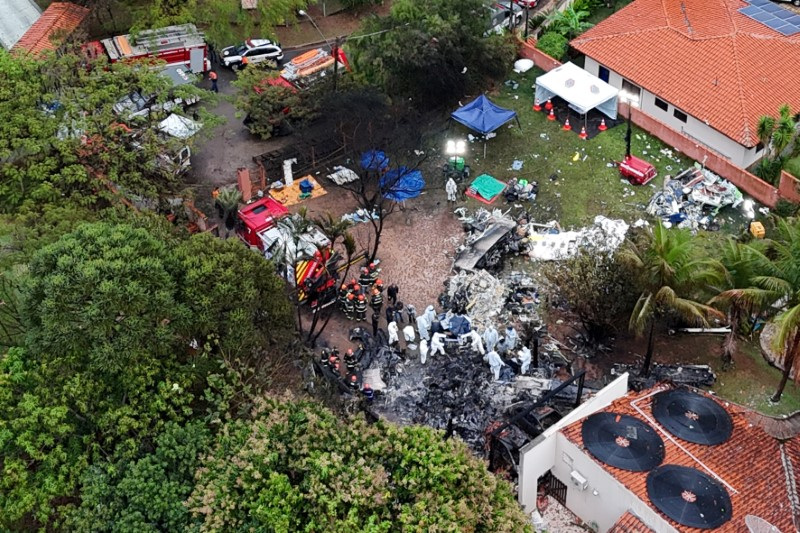SAO PAULO (Reuters) – Authorities investigating a plane crash in Brazil that killed all 62 people on board last week now have the full transcript of the “black box” but its contents do not immediately provide clarity on the cause of the accident, local TV channel Globo reported on Wednesday.
The cockpit voice recorder transcript shows that the pilot and co-pilot noticed a sharp loss of altitude about a minute before the crash, TV Globo reported on its main news Jornal Nacional on Wednesday night, citing anonymous people working on the investigation.
TV Globo has released neither the audio nor the transcript.
According to TV Globo, the transcript consists of about two hours of audio recordings, including a question from the co-pilot to the pilot about what was happening and a statement that the plane needed “more power” to stabilize.
The plane, an ATR-72 turboprop operated by local airline Voepass, was en route from Cascavel, in the southern state of Paraná, to Sao Paulo and crashed at around 1:30 p.m. (16:30 GMT) in the town of Vinhedo, about 50 miles (80 kilometers) northwest of Sao Paulo.
All occupants were killed in the crash, but no one on the ground was injured.
A video shared on social media shortly after the crash showed the ATR-72 aircraft spiraling out of control and crashing behind a grove of trees near homes, followed by a large plume of black smoke.
The pilots did not report any emergencies or bad weather conditions, the Brazilian Air Force said in a statement on Friday.
According to TV Globo, investigators of the crash say it is not yet possible to analyze the audio alone to determine the cause of the crash.
TV Globo also reported that authorities did not recognize any characteristic sounds, such as sounds of fire, electrical failure or engine failure. However, the audio was difficult to listen to.
According to TV Globo, authorities have never denied or confirmed that there may have been ice formation on the plane's wing.
Aviation experts analyzed video footage of the crash, leading some to suspect that ice had formed on the plane.
Cenipa, Brazil's air accident investigation center, could not immediately respond to a Reuters request for comment on the TV Globo report outside regular business hours.
(Reporting by Andre Romani and Luana Maria Benedito; editing by Sandra Maler)

